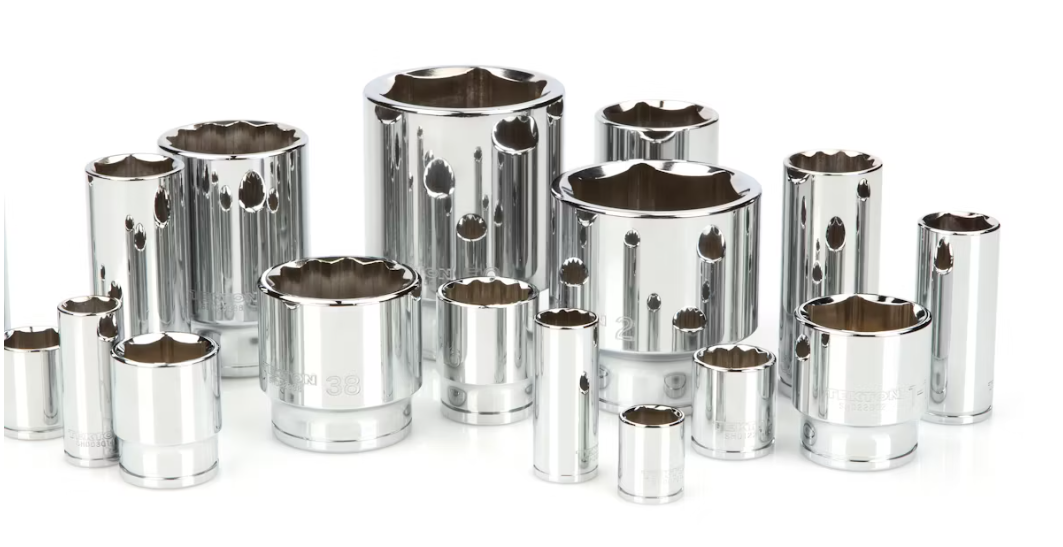Exploring Spanner Sockets
Types of Spanner Sockets
Spanner sockets, also known as spanner wrench sockets or spanner tool sockets, are an essential part of any toolkit. At Wiha Tools, you can explore a wide range of spanner sockets and accessories designed to meet various industrial and mechanical needs. These versatile tools are crucial for fastening and loosening nuts, bolts, and other fasteners in a wide array of applications. Whether you’re a professional tradesperson or a DIY enthusiast, understanding the different types of spanner sockets available can significantly enhance your productivity and efficiency.

Types of Spanner Sockets
Standard Spanner Sockets
Standard spanner sockets are the fundamental tools in any mechanic or technician’s arsenal. These sockets feature a straightforward design, typically with two pins or lugs that fit into the holes or notches of fasteners. They are commonly used for applications where a secure and non-slip grip is essential, such as in automotive repair and maintenance, machinery assembly, and industrial equipment servicing.
Applications and uses of standard spanner sockets:
- Automotive repairs and maintenance
- Machinery assembly and disassembly
- Industrial equipment servicing
- Plumbing installations and repairs
- Electrical panel maintenance
Specialized Spanner Sockets
In addition to standard spanner sockets, specialized spanner sockets cater to specific industry needs. These may include extended reach spanner sockets for accessing recessed fasteners, offset spanner sockets for tight spaces, or adjustable spanner sockets for versatility in handling various fastener sizes. The benefits of specialized spanner sockets lie in their ability to provide solutions for unique challenges encountered in different mechanical and industrial settings.
Benefits and applications of specialized spanner sockets:
- Extended reach for accessing recessed fasteners
- Maneuverability in tight or hard-to-reach spaces
- Versatility in handling various fastener sizes
- Customized solutions for unique industry challenges
Choosing the Right Size
When it comes to spanner sockets, choosing the right size is crucial for ensuring a secure and effective fit. Using the wrong size can lead to slippage, damage to fasteners, and even personal injury. Therefore, it’s important to consider a few key factors when selecting the correct size for your specific task.
Factors to Consider
- Fastener Size: The most obvious factor is the size of the fastener you need to work with. Different spanner socket sizes are designed to fit specific fastener dimensions, so it’s essential to match the socket size to the fastener size for a snug and secure fit.
- Application Requirements: Consider the specific requirements of your application. For instance, if you need to access recessed or hard-to-reach fasteners, an extended reach or offset spanner socket may be necessary.
- Tool Compatibility: Ensure that the selected spanner socket size is compatible with your existing tools and equipment. It should seamlessly integrate with your ratchets, torque wrenches, or other accessories.
Size Chart Reference
Understanding the sizing chart provided by Wiha Tools is essential for accurate size selection. The chart typically outlines the dimensions of each spanner socket size and its corresponding applications. When referring to the size chart:
- Take note of both metric and standard measurements for comprehensive coverage.
- Use the chart as a reference guide for selecting the appropriate socket size based on your specific needs.
By considering these factors and utilizing the size chart reference, you can confidently choose the right spanner socket size for various tasks.
Maintenance Tips
Cleaning and Lubrication
Proper maintenance of spanner sockets is essential to ensure their longevity and optimal performance. When it comes to cleaning, start by removing any debris or grime from the sockets using a mild solvent and a clean cloth. Ensure that all residue is thoroughly wiped away to prevent contamination during future use. Regular lubrication is also crucial for keeping spanner sockets in top condition. Apply a small amount of lubricant to the moving parts of the sockets to reduce friction and wear, ultimately extending their lifespan.
Storage and Care
To maintain the integrity of spanner sockets, proper storage is key. Store them in a dry environment away from exposure to moisture or extreme temperatures. Consider using a dedicated toolbox or drawer organizer to keep them neatly arranged and protected from potential damage. Additionally, always handle the sockets with care, avoiding unnecessary impact or dropping which can lead to deformation or chipping.
Benefits and Applications
Advantages of Spanner Sockets
Spanner sockets offer a multitude of benefits that significantly enhance work efficiency and productivity. Their robust design and secure grip make them indispensable tools for various mechanical and industrial tasks. The key advantages of utilizing spanner sockets include:
- Secure Fastening: Spanner sockets provide a secure grip on fasteners, minimizing the risk of slippage and potential damage to the fastening components.
- Versatility: These sockets are versatile tools suitable for a wide range of applications, from automotive repairs to machinery maintenance, making them essential in diverse work environments.
- Enhanced Control: The design of spanner sockets allows for precise control during fastening and loosening operations, ensuring accuracy and reliability in every task.
- Durability: Built to withstand heavy-duty use, spanner sockets are durable and long-lasting, offering consistent performance even in demanding work conditions.
- Time-Saving: With their efficient grip and ease of use, spanner sockets contribute to time-saving benefits, streamlining tasks and increasing overall productivity.
Popular Applications
Spanner sockets find extensive use across various industries and projects due to their adaptability and reliability. Some common examples of industries and projects where spanner sockets are widely utilized include:
- Automotive Repair: From engine maintenance to brake system repairs, spanner sockets play a vital role in servicing vehicles with precision.
- Industrial Machinery Maintenance: In manufacturing facilities, spanner sockets are essential for maintaining heavy machinery, ensuring smooth operation.
- Construction Projects: Whether it’s assembling structural components or installing mechanical fixtures, spanner sockets are indispensable in construction tasks.
- Plumbing Installations: Plumbing professionals rely on spanner sockets for securely fastening plumbing fixtures during installations or repairs.
The versatility and adaptability of spanner sockets make them invaluable tools across numerous tasks in different sectors. Their ability to provide secure fastening solutions while enhancing efficiency makes them an indispensable addition to any toolkit.
Leveraging Spanner Sockets for Success
When it comes to achieving success in your projects, having the right equipment is essential. Wiha Tools offers a comprehensive range of high-quality accessories to complement your spanner sockets. These attachments and add-ons are meticulously designed to enhance the functionality and versatility of your existing toolkit. By integrating Wiha Tools accessories into your arsenal, you can elevate the efficiency and precision of your tasks across various industrial and mechanical applications. Explore the diverse selection of Wiha Tools attachments and add-ons to optimize your work processes and achieve superior results.
